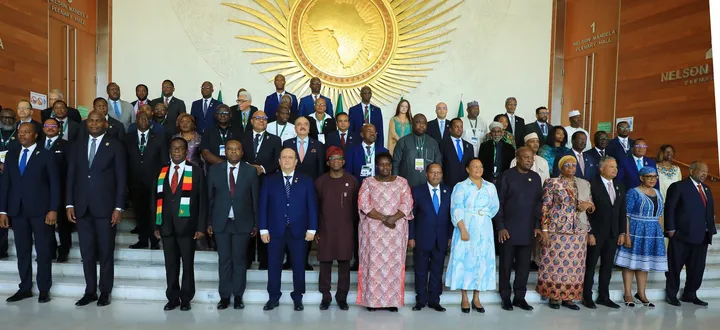Nigeria’s President Bola Tinubu has condemned the killing of Isa Bawa, the emir of Gobir in Sokoto State, by gunmen over delay in ransom payment.
The emir was abducted three weeks ago along with his son on his way to his native town of Sabon Birni, near the border with Niger, after attending a meeting in regional capital Sokoto.
"The President extends his profound condolences to the bereaved family, the Gobir Emirate, and the government of Sokoto State. The President prays for the repose of the soul of the traditional ruler and comfort to his family at this difficult time," the statement signed by Special Adviser to the President, Ajuri Ngelale read.
Bawa was killed days after he appeared in a video pleading for his release, a palace official told AFP on Wednesday.
'Heinous act'
President Tinubu vowed the "heinous act will not go without a decisive response."
Other senior political figures in the country have reacted to the emir's murder.
The former presidential candidate from the opposition, Atiku Abubakar, shared condolences with the family.
"The heinous act of violence perpetrated by bandits resulting in the untimely demise of such a revered leader is a stark reminder of the pressing need for enhanced security measures in safeguarding the lives and property of citizens," Atiku wrote in a statement on X.
Another former presidential candidate, Peter Obi, said he received the news of the emir's death "with deep shock and sadness."
Deadly attacks
Several states in northwestern and central Nigeria have for years been terrorised by bandits who raid villages from their forest hideouts, kill and abduct residents, as well as burn homes after looting them.
"His Highness was shot dead by his captors yesterday (Tuesday) while negotiations were ongoing to pay the ransom they demanded," Shuaibu Gwanda Gobir told AFP.
"The people sent to negotiate the payment called and informed us of the murder of the emir after seeing his dead body in the bandits' camp," said Gobir, a member of the council of kingmakers in Gobir emirate.
The bandits had given a Tuesday deadline for the ransom payment and threatened to kill the 73-year-old monarch if the money was not paid, Gobir said.
Security challenges
The killing of the traditional ruler underscores the security challenge the criminal gangs pose in the region, where they have displaced scores of farming and herding communities, disrupting agriculture and threatening food security.
"His body is yet to be released by the bandits. Our priority now is to secure the release of his son, who is still in captivity," Gobir said.
Police in Sokoto have not yet commented on the killing.
Nigeria's many traditional rulers have no constitutional powers and rely on regional governments for funding, but they are important cultural custodians wielding enormous influence over their subjects.
Their patronage can be key at elections and in winning public support for government policies.
Targets for terrorists
Boko Haram terrorists have also killed a traditional ruler in the northeast and made a failed assassination attempt on another in the past.
In May 2014, Boko Haram gunmen killed Idrissa Timta, the emir of Gwoza in northeast Borno State, in an ambush, while another monarch travelling with him managed to escape.
In February 2013, Boko Haram opened fire on the car of the late emir of Kano, Ado Bayero as he was leaving a mosque after Friday prayers, killing three of his guards.
➤Click here to follow our WhatsApp channel for more stories.























